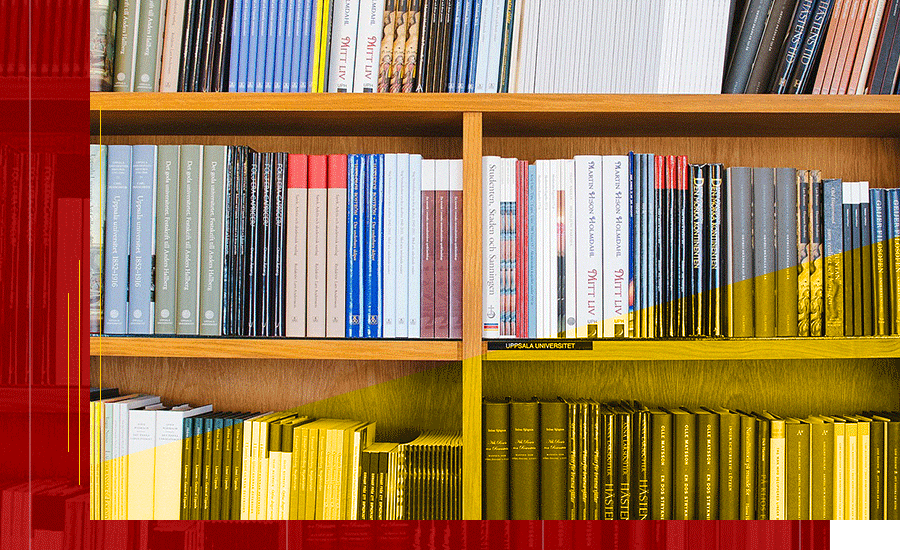
Latest Must-Reads in Public Diplomacy: November 2025
CPD Faculty Fellow Bruce Gregory has compiled a list of the latest must-reads in public diplomacy. Known affectionately at CPD as "Bruce's List," this list is a compilation of books, journal articles, papers and blog posts on a wide variety of PD topics. Highlights from the latest list include publications on topics spanning Ukraine's public diplomacy strategy during its war with Russia, a deeply researched study of the Cold War-era US Information Agency, and a new book on how non-state diplomatic actors can be a source of public diplomacy, edited by CPD Research Fellow Anna Popkova.
Corneliu Bjola and Alicia Fjällhed, “Public Diplomacy in the Crossfire: Decoding Ukraine’s ‘Strategic Self’ During Wartime,” International Affairs, published online October 20, 2025. Bjola (Oxford University) and Fjällhed (Lund University) explore the meaning of public diplomacy (PD) in wartime using Ukraine’s response to Russia’s invasion as a case study. They make two claims. First, in hostile geopolitical contexts PD actors construct both a “Strategic Self” — understood as a “Projecting Self” that emphasizes values and resilience — and a “Distancing Self” that frames an adversary’s aggression and destabilizing actions. Balancing their interplay in strategic narratives is essential to credible and effective public diplomacy at home and abroad. Second, the authors argue that in wartime PD actors adopt forms of “othering,” meaning initiatives that widen rather than narrow political and cultural space between countries. They support their conceptual arguments with a qualitative content analysis of the Twitter/X activities of ten Ukrainian governmental and non-governmental during three phases of the war. The article includes a literature review of PD during wartime, examination of the concepts of “othering” and identity, and discussion of the “Strategic Self” concept in public diplomacy. Well-constructed graphics help explain their research design and methodology.
Alice Ciulla, “Spreading Anti-Communism Among Elites? Public Diplomacy, Transnational Intellectual Exchange, and the Journal Problems of Communism,” European Journal of American Studies, 20(2), Summer 2025. Ciulla (Roma Tre University, Italy) examines the rise and historic significance of Problems of Communism, a journal of analysis and ideas published by the US Information Agency (USIA) throughout the Cold War and subsequently by the publisher Taylor & Francis as Problems of Post-Communism. Her deeply researched study places Problems of Communism in the context of US public diplomacy and Cold War ideological conflicts. It discusses the influence of the journal’s founding and longest serving editor, Abraham Brumberg, and its content, editorial trajectory, and contributors, many of whom were world-renowned scholars, emigres, and journalists. Ciulla compares the journal with other USIA publications and analyzes its impact on détente and adaptation in the post-Cold War context. Problems of Communism was “intellectually credible, ideologically engaged, yet editorially autonomous,” she argues, an effective hybrid form of public diplomacy. Founded at the height of McCarthyism, it stood apart as an informed critical analysis of communism by intellectuals in the liberal tradition.
Anna Popkova, ed., Disruption and Dissent in Public Diplomacy, (Palgrave Macmillan, 2025). In this timely and original book, Popkova (Western Michigan University) invited accomplished scholars to examine the public diplomacy of an under-studied category of non-state diplomatic actors — diaspora groups, governments in exile, and others engaged in dissent and disruption. The book is grounded in three assumptions. First, although states possess significant power and authority, their claims of political legitimacy and representation are frequently challenged by non-state actors. These actors engage directly with publics and exercise public diplomacy capabilities that can matter as much or more than status. Second, disruption and dissent occur when groups believe the state does not represent, or misrepresents, their interests. In using diplomatic capabilities, and sometimes claiming representation, these nonstate actors can achieve political goals. Third, disruption and dissent — often perceived by states as negative when they occur within the state — can be a creative means to achieve advocacy and dialogue. Popkova does not treat disruption and dissent as inherently positive. But “they can be sources of diplomacy not “anti-diplomacy” by challenging the state abroad and engaging in construction of narratives at home. Disruption that interrupts a monologue, she argues, often helps to create a dialogue and mediate estranged relations.
Neal Rosendorf, “Only American Voters Can Reinvigorate U.S. Soft Power: A Rumination After Joe Nye’s Memorial Service,” October 10, 2025, CPD Blog, USC Center on Public Diplomacy. Rosendorf, a former IR professor at New Mexico State University and a research assistant to the late Harvard University professor Joseph Nye, reflects on his human qualities, his monumentally influential scholarship on the nature of power, and his insights into the consequences of Donald Trump’s dismantling of American soft power. Rosendorf summarizes Nye’s public comments on the damage done by Trump’s policies and actions, which he made until just days before his death in May 2025. His blog points to the relative ease and speed with which soft power can be lost — and the difficulties that must be overcome for soft power to be regained. Nye understood the stakes, for the interests of the United States and others, in rebuilding soft power. Rosendorf argues “America’s reputation has indeed been ruined,” and that American voters hold the key to reestablishing American soft power. In Nye’s absence, he urges, it is time for “academics, influencers, policy makers, and politicians . . . to get to work.”
Amro Shubair, “Where Did Diplomacy Go?” October 15, 2025, CPD Blog, USC Center on Public Diplomacy.
Lamia Zia, “YouTube As A Tool of Soft Power in the Digital Age,” November 13, 2025, CPD Blog, USC Center on Public Diplomacy.
The full edition of Bruce's List can be found here.
Visit CPD's Online Library
Explore CPD's vast online database featuring the latest books, articles, speeches and information on international organizations dedicated to public diplomacy.
Popular Blogs
-
November 3
-
November 5
-
September 25
-
September 30
-
October 16







